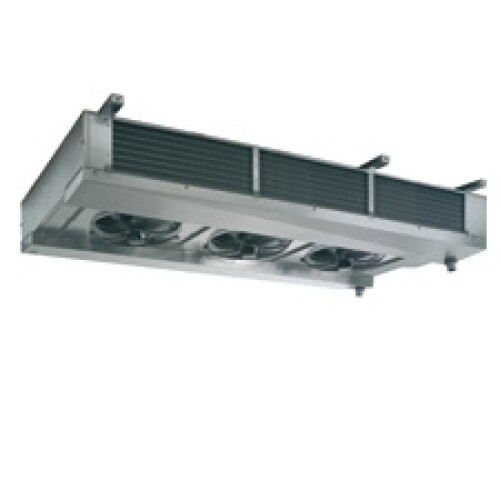Evaporators
Evaporators: innovation and applications in refrigeration systems
Evaporators are a vital component in refrigeration and HVAC/R (Heating, Ventilation, Air Conditioning, and Refrigeration) systems. They not only contribute to the overall efficiency of the system but are also fundamental to ensuring the proper operation of various industrial and commercial applications.
The role of evaporators in refrigeration systems
Evaporators play an essential role in transferring heat from one fluid to another, facilitating the refrigeration process. This occurs through the evaporation of the refrigerant, which absorbs heat from the surrounding environment, lowering the temperature and ensuring optimal conditions for various applications.
Applications of evaporators:
- Food industry: Evaporators are crucial in refrigeration systems used for food preservation. They maintain the low temperatures necessary to keep products like meat, fish, dairy, and vegetables fresh, preventing bacterial growth and extending shelf life.
- Pharmaceutical industry: In this sector, evaporators are used to maintain controlled temperature and humidity conditions essential for storing medicines and vaccines. They ensure that pharmaceutical products retain their effectiveness during transportation and storage.
- Commercial and residential air conditioning: Evaporators are an integral part of air conditioning systems, providing thermal comfort in commercial and residential buildings. They cool indoor air, improving air quality and creating comfortable environments.
- Industrial processes: Evaporators are used in various industrial applications, such as beverage production, chemical processing, and energy generation. They help maintain stable and controlled temperatures, which are essential for process efficiency and safety.
Innovations in evaporators
Technological advancements have led to the development of more efficient and environmentally friendly evaporators.
- Heat recovery technology: Some modern evaporators are designed to recover the heat dissipated during the refrigeration process and reuse it, improving the overall energy efficiency of the system.
- Advanced materials: The use of high-performance materials such as aluminum alloys and anti-corrosion coatings increases the durability of evaporators and reduces maintenance requirements.
- Compact design: New compact designs allow for higher heat exchange efficiency in a smaller space, making integration into existing systems easier without requiring significant modifications.




